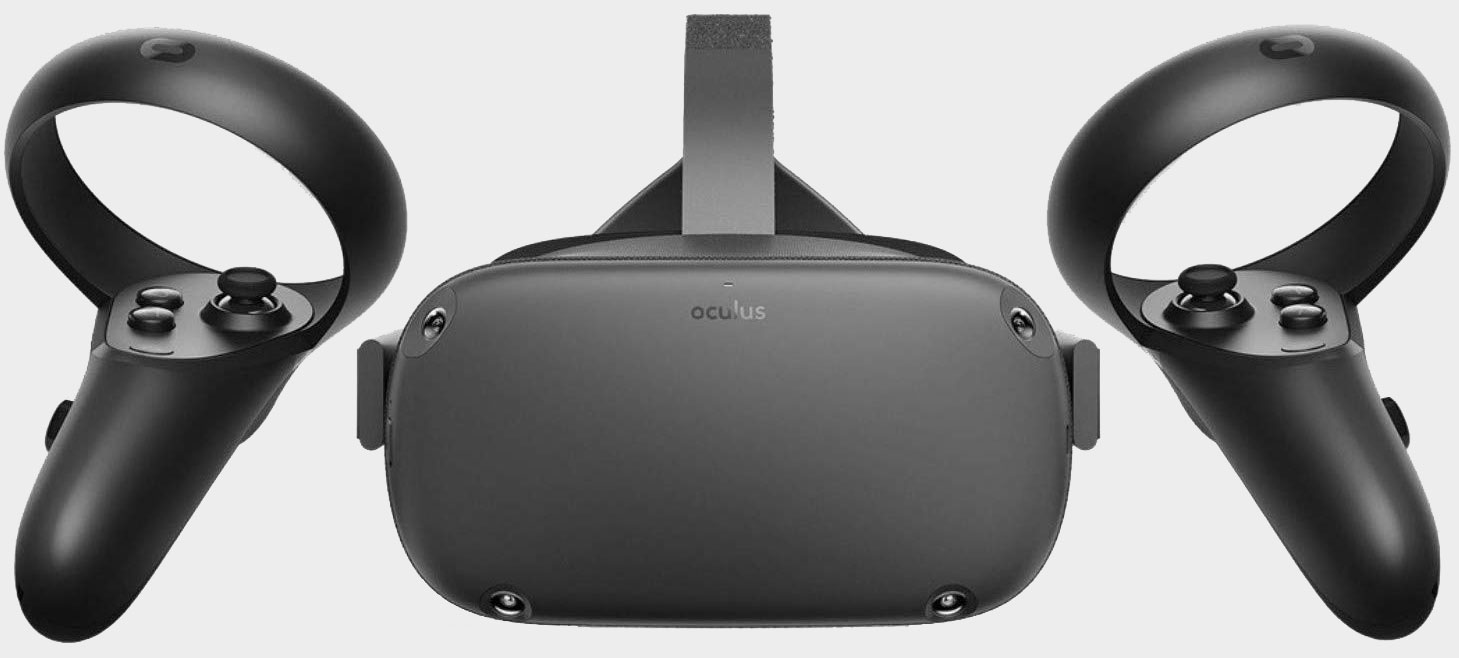Oculus Quest is giving VR the boost it needs for mass adoption
As VR hardware sales approach $2.1 billion, we can put to rest any notion of VR being a fad.

I'd wager that most of you reading this play games on a PC with a keyboard and mouse (or your controller of choice), while only a small fraction don a VR headset. Make no mistake, though, VR continues to grow, with the Oculus Quest driving VR hardware sales to new heights.
The Quest is a relative newcomer to the field of VR headsets, though only in the sense that it's a separate product from the Oculus Rift. It's also a standalone headset—it contains all the necessary hardware, rather than tasking users with tethering it to a PC or jamming a smartphone into the mask.
It seems the convenience, capabilities, and price ($399) of the Quest are a winning combination for would-be VR adopters to make the leap. To wit, Nielsen's SuperData Research says VR hardware revenue is on pace to hit $2.1 billion by the end of the year, up 31 percent from $1.6 billion in 2018, thanks in large part to the Quest.
"This gain is largely driven by consumer adoption of Oculus Quest and steady growth in enterprise usage," SuperData Research states.
The Quest is the best VR headset for most people, and it's getting better with more features being added. For example, hand tracking has found its way to the Quest in experimental form (and will arrive in earnest early next year), and you can now plug the Quest into a PC to play Rift games (via Oculus Link).
Any notion of VR being a fad or a small market opportunity is quickly fading, if it hasn't already disappeared outright. I think the bigger question is, which will prove the most popular—VR, AR (augmented reality), or MR (mixed reality)?
Interestingly, SuperData Research says AR is already mainstream, albeit that's based on more than 2 billion people having experienced the tech on mobile devices (think: Pokemon Go on your smartphone, rather than something like HoloLens).
Keep up to date with the most important stories and the best deals, as picked by the PC Gamer team.
Clumping all three categories together, the 'XR' market as a whole is on track to hit $8.5 billion in 2020, SuperData Research says. That perhaps suggests that no single variant will outright win the market. More importantly, however, it means developers should have incentive to continue building more VR, AR, and MR experiences, which could have a snowball effect on hardware adoption.
I'm curious, do you own a VR/AR headset? If not, do you plan on buying one by the end of 2020?
Paul has been playing PC games and raking his knuckles on computer hardware since the Commodore 64. He does not have any tattoos, but thinks it would be cool to get one that reads LOAD"*",8,1. In his off time, he rides motorcycles and wrestles alligators (only one of those is true).


